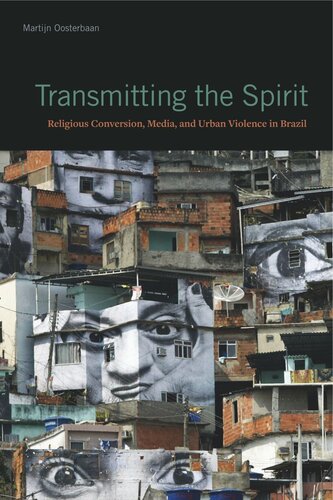

Most ebook files are in PDF format, so you can easily read them using various software such as Foxit Reader or directly on the Google Chrome browser.
Some ebook files are released by publishers in other formats such as .awz, .mobi, .epub, .fb2, etc. You may need to install specific software to read these formats on mobile/PC, such as Calibre.
Please read the tutorial at this link: https://ebookbell.com/faq
We offer FREE conversion to the popular formats you request; however, this may take some time. Therefore, right after payment, please email us, and we will try to provide the service as quickly as possible.
For some exceptional file formats or broken links (if any), please refrain from opening any disputes. Instead, email us first, and we will try to assist within a maximum of 6 hours.
EbookBell Team

4.7
66 reviewsPentecostalism is one of the most rapidly expanding religious-cultural forms in the world. Its rise in popularity is often attributed to its successfully incorporating native cosmologies in new religious frameworks. This volume probes for more complex explanations to this phenomenon in the favelas of Brazil, once one of the most Catholic nations in the world.
Based on a decade of ethnographic fieldwork in Rio de Janeiro and drawing from religious studies, anthropology of religion, and media theory, Transmitting the Spirit argues that the Pentecostal movement’s growth is due directly to its ability to connect politics, entertainment, and religion. Examining religious and secular media—music and magazines, political ads and telenovelas—Martijn Oosterbaan shows how Pentecostal leaders progressively appropriate and recategorize cultural forms according to the religion’s cosmologies. His analysis of the interrelationship among evangélicos distributing doctrine, devotees’ reception and interpretation of nonreligious messaging, perceptions of the self and others by favela dwellers, and the slums of urban Brazil as an entity reveals Pentecostalism’s remarkable capacity to engage with the media influences that shape daily life in economically vulnerable urban areas.
An eye-opening look at Pentecostalism, media, society, and culture in the turbulent favelas of Brazil, this book sheds new light on both the evolving role of religion in Latin America and the proliferation of religious ideas and practices in the postmodern world.